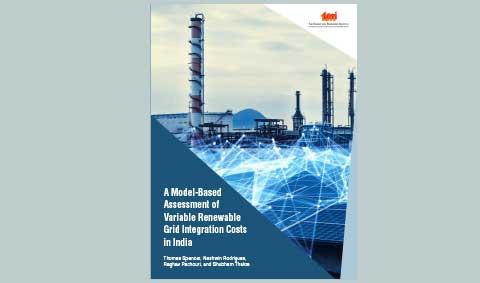Increasing share of variable renewable in total energy generation mix is cost effective for India even in the short-term: TERI
The Energy and Resources Institute (TERI) released a report on ‘A Model-Based Assessment of Variable Renewable Grid Integration Costs in India’ today. The report provides a technological and economic analysis of the costs of integrating renewable energy (RE) into the Indian electricity grid.
RE is the cheapest source of electricity when available. However, it does introduce other costs into the system.
In the context of the already weak finances of power distribution companies, the report provides an analysis of the costs of integrating RE into the electricity grid.
According to Mr. Thomas Spencer, lead author of the report, “This study shows that even in the short-term, it is optimal from a cost perspective for India to substantially increase the share of VRE in the total generation mix”.
A simple summarisation is:
- Combining cheap energy when the sun shines and the wind blows with somewhat more expensive back-up capacities still allows total system costs to be lower than in a scenario with no RE growth
- Given technology costs foreseeable for the coming decade, RE deployment can rise substantially above the existing levels without affecting the financial health of distribution companies
- Growth in electricity demand and balancing fixed and variable costs can enable rise in RE share of the order of 40% generation
- Post-2030, if demand continues to rise and storage costs can fall below ~80-100 USD/kWh, RE can be used to meet subsequent electricity requirement
- Enhancing the grid integration of the Indian system and expanding pumped hydro capacity is the most cost-effective way of integrating rising RE share. While some gas-powered electricity may be required, investments in new coal capacity would be economically unviable
About TERI
The Energy and Resources Institute (TERI) is an independent, multi-dimensional organization, with capabilities in research, policy, consultancy, and implementation. It has pioneered conversations and action in the energy, environment, climate change, and sustainability space for over four decades.
The institute’s research and research-based solutions have had a transformative impact on industry and communities. Headquartered in New Delhi, it has regional centers and campuses in Gurugram, Bengaluru, Guwahati, Mumbai, Panaji, and Nainital, supported by a multi-disciplinary team of scientists, sociologists, economists and engineers, and state-of-the-art infrastructure.
To know more, please check TERI.

